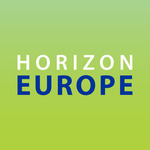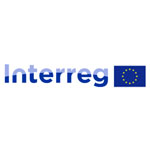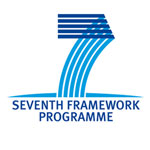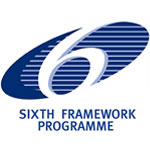Dear visitors,
The Centre for Knowledge Transfer in Information Technologies (CT3) at the Jožef Stefan Institute has joined IRCAI, the International Research Centre on Artificial Intelligence under the auspices of UNESCO, as of January 2025.
We invite you to continue following our work and activities in artificial intelligence on the IRCAI website and our social media channels (LinkedIn, Facebook, X). The CT3 website will remain active until the end of 2025.
We look forward to staying connected!
CT3 Team
/ / /
Dragi obiskovalci,
Obveščamo vas, da se je Center za prenos znanja na področju informacijskih tehnologij (CT3) na Institutu “Jožef Stefan” z novim letom 2025 priključil IRCAI, Mednarodnemu raziskovalnemu centru za umetno inteligenco pod okriljem UNESCA.
Vabimo vas, da naše delo in aktivnosti na področju umetne inteligence spremljate še naprej na IRCAI spletni strani in družbenih omrežjih (LinkedIn, Facebook, X). CT3 spletna stran bo ostala aktivna še do konca leta 2025.
Veselimo se nadaljnjega sodelovanja z vami!
Ekipa CT3
PROJECTS
RESEARCH & INNOVATE
The Centre has been actively involved in the European Research Area since 2000s, receiving funding in the Framework programmes FP6, FP7 and now in H2020. The primary source of results from the projects funded by the EU’s framework programmes for research and innovation (FP1 to Horizon 2020) is Community Research and Development Information Service (CORDIS).
The Centre also actively participates in national and international scientific, applied and industrial projects.
CURRENT PROJECTS

TWON
TWON (2022-2026) will develop a novel empirical method for systematically researching the effects of design choices of mechanisms inside OSNs, by creating digital twins of social network sites, called TWONs.

AI4Gov
AI4Gov (2023-2025) aims to unveil the potentials of Artificial Intelligence (AI) and Big Data technologies for developing evidence-based innovations, policies, and policy recommendations to harness the public sphere, political power, and economic power for democratic purposes.

FAME
FAME (2023-2025) aims to develop, deploy and launch to the global market a unique, trustworthy, energy-efficient, and secure federated data marketplace for Embedded Finance (EmFi).

Plooto
Plooto (2022-2025) aims to deliver a Circular and Resilient Information System (CRIS) to support manufacturers in their green, digital and circular transition.

Graph-Massivizer
Graph-Massivizer (2022-2025) researches and develops a high-performance, scalable, and sustainable platform for information processing and reasoning based on the massive graph representation of extreme data.

PREPARE
PREPARE (2023-2027) aims at advancing rehabilitation care for patients with chronic non-communicable diseases.
PAST PROJECTS

A-CINCH
A-CINCH (2020-2023) aims at mitigating the decreasing interest in the study of nuclear subjects. It will focus on students and teachers from secondary schools up to academia as well as end users in the field.

ODEUROPA
Odeuropa (2021-2023) will apply state-of-the-art AI techniques to text and image datasets that span four centuries of European history. It will identify the vocabularies, spaces, events, practices, and emotions associated with smells and smelling.

STAR
STAR (2021-2023) aims to research and integrate leading-edge AI technologies like active learning systems, simulated reality systems, etc., to allow the safe deployment of sophisticated AI systems in production lines.

INFINITECH
INFINITECH (2019-2023) is a joint effort of global leaders in ICT and finance towards lowering the barriers for BigData / IoT/ AI driven innovation.

EU-Japan.AI
EU-Japan.AI (2021-2022) will develop a platform-based approach to connect relevant stakeholders from the EU and Japan and support knowledge exchange on innovative AI applications for manufacturing.

NAIADES
NAIADES (2019-2022) envisions transforming water sector through automated and smarter water resource management and environmental monitoring.

ELEXIS
The project ELEXIS (2018-2022) proposes to integrate, extend and harmonize national and regional efforts in the field of lexicography, both modern and historical, with the goal of creating a sustainable infrastructure.

COG-LO
The main goal of COG-LO (2018-2021) is to create the framework and tools that will add cognition and collaboration features to future logistics processes.

SILKNOW
SILKNOW (2018-2021) aims to produce an intelligent computational system that goes beyond current technologies in order to improve our understanding of European silk heritage.

Water4Cities
Water4Cities (2017-2021) will rely on sensor technologies, data and visual analytics to enable localization, visualization and analysis of urban water.

CyberSANE
CyberSANE’s (2019-2022) aim is to enhance the security and resilience of critical information infrastructures by providing a dynamic collaborative, warning and response system.

Humane ai
Humane AI (2019-2020) will develop the scientific foundations and technological breakthroughs needed to shape the ongoing artificial intelligence (AI) revolution.

FIN-TECH
FIN-TECH project (2019-2020) aims to create a European training programme, aimed at providing shared risk management solutions that automatize compliance of Fintech companies (RegTech).

EnviroLENS
The goal of EnviroLENS project (2019-2020) is to deliver specific environmental governance and enforcement services that will enable immediate and EFFECTIVE environmental MONITORING and ENFORCEMENT.

They Buy For You
TheyBuyForYou (2018-2020) will deliver the data value chains, enabling technologies, and innovation that are critically needed for this fundamental change to happen.

Perceptive Sentinel
Perceptive Sentinel (2018-2020) is challenging the current earth observation (EO) exploitation practices by delivering completely new, revolutionary EO ecosystem service.

DataBench
At the heart of the DataBench project (2018-2020) is the goal to design a benchmarking process helping European organizations developing Big Data Technology to reach for excellence and constantly improve their performance.

x5Gon
The project X5GON (2017-2020) will create three services X5oerfeed, X5analytics and X5recommend and run a series of pilot case studies.

MEET-CINCH
MEET-CINCH (2017-2020) will develop completely new education and training approaches based on remote teaching and the flipped classroom concept.

RENOIR
The aim of the RENOIR project (2016-2019) is to treat the vast complexity of such information dynamics in social systems by involving researchers in social sciences, journalism, computing, data mining and complexity science.

MOVING
MOVING (2016-2019) is an innovative training platform that enables users from all societal sectors to fundamentally improve their information literacy by training how to use, choose, reflect and evaluate data mining methods in connection with their daily research tasks and to become data-savvy information professionals.

OPTIMUM

AQUASMART
AQUASMART’s objective (2015-2016) is to enhance innovation capacity to the aquaculture sector, by addressing the problem of global knowledge access and data exchanges between aquaculture companies and its related stakeholders.

Mentor Train
The Mentor Train (2018-2021) aims to create a platform for imparting pedagogical skills to mentors, particularly experienced workers from SMEs who may not necessarily have relevant teaching experience.

Micro HE
MicroHE (2017 -2020) aims to provide the most comprehensive policy analysis yet conducted of the impact of modularisation, unbundling and micro-credentialing in European Higher Education.

3 Smart
The main objective of the 3Smart project (2017-2019) is to provide a technological and legislative setup for cross-spanning energy management of buildings, grids and major city infrastructures in the Danube Region.

FI-IMPACT
The objective of the FI-IMPACT Support Action (2014-2016) is to collect and assess the quali-quantitative evidence of the potential socio-economic impact of the Future Internet.

ProaSense
ProaSense’s core goal (2013-2016) is a new class of enterprise systems, proactive enterprises, that will be continuously aware of that what “might happen” in the relevant business context and optimize their behavior to achieve that what “should be the best action”, are emerging nowadays..

MEDIAMIXER
The objective of MediaMixer (2012-2014) is to set up and sustain a community of video producers, hosters, and redistributors who will be supported in the adoption of semantic multimedia technology in their systems and workflows to build a European market for media fragment re-purposing and re-selling.

MOBIS
The main goal of MobiS (2012-2015) is to create a new federated, customized and intelligent mobility platform by applying novel Future Internet technologies and Artificial Intelligence methods that will monitor, model and manage the urban mobility complex network of people, objects, natural, social and business environment in real-time.

NRG4CAST
NRG4Cast (2012-2015) is developing real-time management, analytics and forecasting services for energy distribution networks in urban/rural communities. We are analysing information regarding network topology and devices, energy demand and consumption, environmental data and energy prices data.

SOPHOCLES
The Sophocles project (2012-2015) will contribute to a theory of dynamics of multi level complex systems by developing mathematical and computational formalisms for information processing in such multi level systems. We will develop the formalism in the context of criticality, emergence, and tipping points in multi level systems and apply it to real data.

transLectures
The aim of transLectures (2011-2014) is to develop innovative, cost-effective solutions to produce accurate transcriptions and translations in VideoLectures, with generality across other Matterhorn-related repositories.

XLike
The goal of the X-LIKE project (2012-2014) is to develop technology to monitor and aggregate knowledge that is currently spread across global mainstream and social media, and to enable cross-lingual services for publishers, media monitoring and business intelligence.

RENDER
RENDER’s (2010-2013) information management solution shall scale to large amounts of data and hundreds of thousands of users, while reflecting on the plurality of points of views and opinions. This is demonstrated by high-profile case studies applying RENDER over real news, blog and data streams that produce millions of data items per day.

ALERT
The aim of the ALERT project (2010-2013) is to develop methods and tools that improve FLOSS coordination by maintaining awareness of community activities through real-time, personalized, context-aware notification.

PlanetData
Intelligent information management The PlanetData project (2010-2014) aims to establish an interdisciplinary, sustainable European community of researchers, helping organizations to expose their data on the Web PlanetData will push forward the state-of-the-art in large-scale data management and its application to the creation of useful, open data sets.

T4ME Net
Building a single EU information space reflecting and supporting the cultural diversity of our continent as an adequate foundation for the multilingual European information and knowledge society is a major challenge. T4ME (2010-2013) shall seek progress by approaching open problems in collaboration with other research fields such as machine learning, social computing, cognitive systems, knowledge technologies and multimedia content.

ENVISION
The ENVISION project (2010-2012) provides an ENVIronmental Services Infrastructure with Ontologies that aims to support non ICT-skilled users in the process of semantic discovery and adaptive chaining and composition of environmental services.

GENDERA
Despite their increasing participation in higher education and research, women are significantly underrepresented in certain disciplines and remarkably few women remain in top jobs in science. Based on analyses and recommendations aimed to improve the situation of women in science, GENDERA (2009-2012) will identify and discuss good practices of gender balance on national and European levels by networking and in workshops.

PASCAL2
Cognitive Systems, Interaction, Robotics Creating new technologies in the area of Machine Learning through networking and technology transfer PASCAL2 (2008-2013) builds on the PASCAL Network of Excellence that has created a distributed institute pioneering principled methods of pattern analysis, statistical modelling, and computational learning.

ACTIVE
ACTIVE technology aims at increasing the productivity of knowledge workers through tools that leverage hidden factual and procedural knowledge. The project (2008-2011) will advance research and integrate technologies to realise the vision of an integrated and contextualised knowledge workspace, which will result in the ACTIVE Knowledge Workspace.

EURIDICE
EURIDICE (2008-2011) is an Integrating project that will create the necessary concepts, technological solutions and business models to establish an information services platform centred on the context of individual cargo items and their interaction with the surrounding environment and the types of users.

COIN
The mission of the COIN IP (2008-2011) is to study, design, develop and prototype an open, self-adaptive, generic ICT integrated solution to support the above 2020 vision, starting from notable existing research results in the field of Enterprise Interoperability and Enterprise Collaboration.

NeOn
The aim of NeOn (2006-2010) is to create the first ever service-oriented, open infrastructure, and associated methodology, to support the development life-cycle of such a new generation of semantic applications, with the overall goal of extending the state of the art with economically viable solutions.

SMART
More effective tools to overcome language barriers, in the form of software for machine translation and other cross-lingual textual information access tasks, are in strong demand. SMART is an attempt to address these shortcomings by deploying the methods of modern Statistical Learning (2007-2010).

IMAGINATION
The main objective of IMAGINATION (2007-2010) is to bring digital cultural and scientific resources closer to their users, by making user interaction image-based and context-aware.

SWING
SWING (2006-2009) aims at deploying Semantic Web Service (SWS) technology in the geospatial domain. In particular, we address two major obstacles that must be overcome for SWS technology to be generally adopted, i.e. to reduce the complexity of creating semantic descriptions and to increase the number of semantically described services.

TAO
TAO is about how existing “legacy” applications can migrate to open, semantics-based Service-Oriented Architectures. We will create an open source infrastructure to aid transitioning of legacy applications to SOA, via ontologies and refactoring into Semantic Web Services.

E4
The ambition of E4 STREP (2006-2008) is to be the catalyst of current and past RandD multi-disciplinary efforts (organisational, managerial, psychological, socio-economical, technical) to finally apply c-business and extended product paradigms to enlarged EU SMEs, irrespective of the sector they belong to and of their geographical location.

TOOL-EAST
The project Tool-East (2006-2007) will provide a cost-efficient ERP application for tool and die making workshops on the basis of existing open source ERP applications. Within the project the open source application will be adapted and modified for the specific requirements of this branch.

IST WORLD
The objective of the IST WORLD project (2005-2007) is to set up and populate an information portal with innovative functionalities that helps to promote RTD competencies in IST in the NMS and ACC and facilitate and foster the involvement of different research entities in joint RTD activities.

WS DEBATE
Major overall objective of the WS DEBATE project (2006-2008) is the stimulation of policy and public debate on the situation and perspectives of women in science, in order to bridge the gap between policy developments and public understanding of the related issues, and to raise gender awareness among policy makers, scientists, as well as among the lay public interested in scientific developments.

SEKT
Researchers at the Semantic Knowledge Technologies (SEKT) project (2004-2006) have developed a robust and comprehensive system to identify the content, relevance and quality of information contained on your computer, your local network or the World Wide Web.

PASCAL
The objective of PASCAL (2003-2007) is to build a Europe-wide Distributed Institute which will pioneer principled methods of pattern analysis, statistical modelling, and computational learning as core enabling technologies for multi-modal interfaces that are capable of natural and seamless interaction with and among individual human users.

CEC-WYS
The CEC-WYS project (2004-2006) objective is to establish Central European Centre for Women and Youth in Science to promote, mobilise and network women in science in Central Europe and to promote, mobilise and network young people in science in the region, and thus to contribute to increasing gender equality in R&D and to structuring the European Research Area.

ECOLEAD
European Collaborative networked Organisations LEADership initiative, ECOLEAD (2004-2008), aims to create strong foundations and mechanisms needed to establish the most advanced collaborative and network-based industry society in Europe.

BOOST-IT
BOOST-IT (2007-2009) gathers into a permanent structure a core group of innovation service providers and small incubator societies, in order to develop a framework (made of services and tools), capable of supporting incubated SMEs through the live-cycle of their own innovation projects.
Contact Us
Jožef Stefan Institute
Centre for Knowledge Transfer in
Information Technologies (CT3)
Jamova 39, SI-1000 Ljubljana
Slovenia
email: ct3@ijs.si
phone: +386 1 477 3593
fax: +386 1 477 3935
Design by Ana Fabjan

